Rana Plaza victims still cry for compensation

Shawdesh desk:
The survivors and family members of deceased workers of Rana Plaza factories were still crying for compensation, treatment, and rehabilitation 10 years after the building collapsed in Savar, on the outskirts of the capital, on April 24, 2013.
The eight-storey unauthorised building, which housed five clothing factories and a private bank, came crashing down, leaving at least 1,136 workers dead and over 2,000 others injured.
At a discussion on April 17, jurists, rights activists, and trade union leaders, as well as survivors of the collapse, called for the immediate disposal of a High Court rule and five writ petitions filed separately by several rights organisations and two individuals seeking compensation for the families of the deceased workers and ensuring workers’ safety.
Masuda Akhter, whose one backbone was broken and three other bones were bent following the collapse of the Rana Plaza building, told New Age that the government had neither compensated nor rehabilitated her in 10 years.
‘Tk 60,000 was given to me in two instalments, and photos were taken while I was under treatment in a hospital,’ Masuda said. ‘But the money was taken away later.’
Masuda, whose husband left her, said that now her 14-year-old school-going son was engaged in work to meet her family’s expenses as she could not work.
Nur Banu and Razia Begum, two other survivors of the collapse, informed New Age that they were given Tk 10,000 each while in the hospital, and photos were taken, but the money was taken back later.
‘Till now, I got no compensation,’ said Nur Banu.
She said that she had been suffering from a financial crisis as she needed to take therapy at the Centre for the Rehabilitation of the Paralysed in Savar regularly due to the displacement of her backbone during the collapse.
Responding to a writ submitted by four rights organisations seeking compensation for several factory disaster victims, including the Rana Plaza collapse, the High Court on November 23, 2021, issued a rule on secretaries of the ministries of law and labour and employment asking them to submit an explanation to the court in four weeks explaining why they should not be directed to take necessary action.
The rule had also directed the secretaries to set up a committee comprising all relevant stakeholders to review the relevant sections of the Bangladesh Labour Act, 2006, determine the criteria for calculating compensation, and establish a ‘stand-alone compensation scheme.’
The respondents were asked to make a report and provide it to the court within three months.
Petitioners’ lawyer Aneek R. Haque told New Age that the secretaries had neither submitted the report nor responded yet.
Bangladesh Legal Aid and Service Trust, Ain O Salish Kendra, Bangladesh Environmental Lawyers Association, and Safety and Rights Society jointly filed the writ.
If a worker is killed in the workplace, their dependents are entitled to a fixed sum of only Tk 200,000, irrespective of the worker’s earnings or age, according to the Bangladesh Labour Act.
The Act fixed the amount of compensation for permanent disablement at Tk 250,000, which was higher than that for death.
This compensation is fundamentally inadequate and set arbitrarily, with total disregard to the full extent of losses faced by the victims, and therefore results in injustice to the workers and their family members, Aneek added.
A suo motu rule has also been pending with the High Court for 10 years after a hearing of 55 days by the bench of Justice Mirza Hussain Haider and Justice Muhammad Khurshid Alam Sarkar.
The last hearing of the rule was held on July 23, 2014.
Four other writ petitions filed by different rights groups and individuals have also remained pending for 10 years.
Right activist Sara Hossain, one of the lawyers for the writ petitioners, told New Age that the suo motu rule and the petitions were not heard by other benches after the hearing jurisdictions of the two benches dealing with compensation matters over the Rana Plaza collapse and Tazreen factory fire were changed in 2014.
She said that an order was passed in 2014 by the then chief justice, SK Sinha, for a joint hearing of the compensation issues by the bench led by Justice Mirza Hussain Haider.
But the hearing was not held as Justice Mirza Hussain Haider was elevated to the Appellate Division on February 8, 2016.
The order of joint hearing came during the hearing of a writ petition filed by activists Nazneen Akter Banu, Saydia Gulrukh Kamal, and Mahmudul Hasan Sumon in May 2013, seeking the prosecution of Md Delwar Hossain, the owner of the Tazreen Fashions factory, and proper compensation to fire victims as per the standard set by the International Labour Organisation’s Convention.
The ILO convention requires payment of compensation to victims considering an individual’s total payable salaries, bonuses, service benefits, and increments of the remaining period of service until retirement age, the activists argued.
A committee, headed by the General Officer Commanding of the Nine Infantry Division of the Bangladesh Army stationed in Savar, formed following an order issued by the bench led by Justice Mirza Hussain Haider on April 30, 2013, submitted a report to the Supreme Court registrar’s office on January 23, 2014, making 16-point recommendations on compensations to Rana Plaza victims.
The committee proposed Tk 14.51 lakh and Tk 1.5 lakh as the highest and lowest compensation from their employers for victims of the Rana Plaza collapse.
The committee recommended Tk 14.51 lakh as compensation for each worker who died, went missing, or became permanently disabled in the collapse of the eight-story building.
The then deputy attorney general, Al Amin Sarkar, told New Age on Tuesday that the committee set the amount of compensation by balancing the amounts between the ILO rules and the Bangladesh Labour Act.
He said that the recommended amount set by the committee would not be enforceable unless the High Court settled the amount of compensation.
BLAST’s legal director, M Barkot Ali, told New Age that they were not getting a suitable bench to settle the dispute over the payment of compensation for industrial labours.
Former Appellate Division judge Md Nizamul Haq said that it would not have taken 10 years to resolve the compensation issue if the government was sincere about it.
He urged the judges to settle labour rights issues expeditiously without giving any adjournment of hearing.


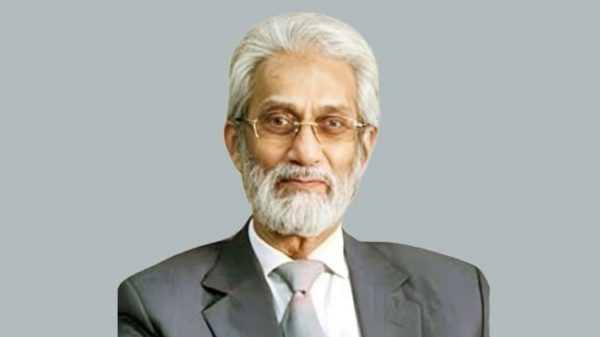
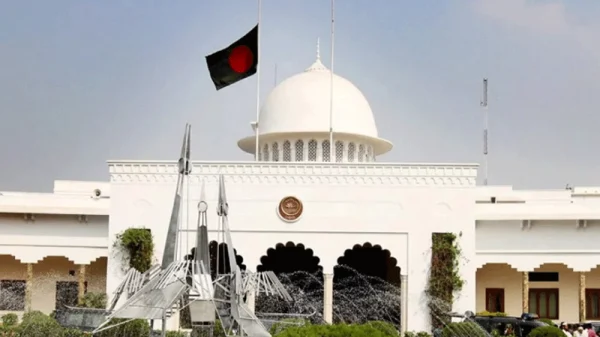
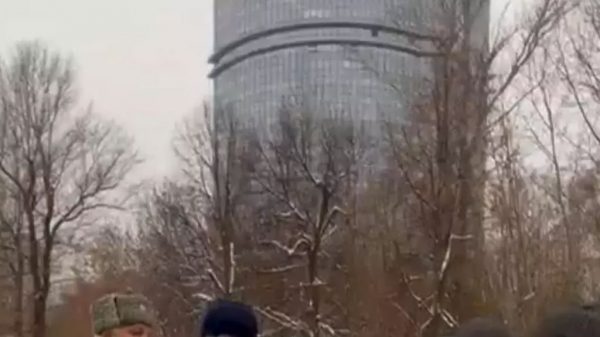
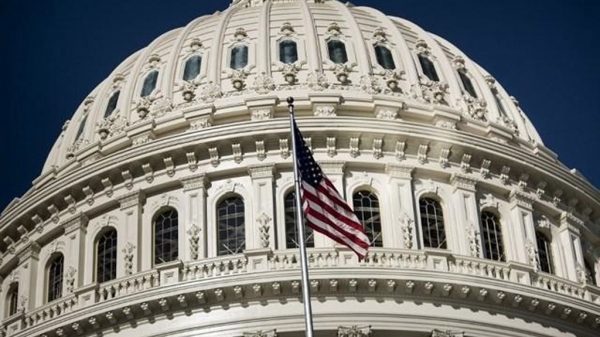
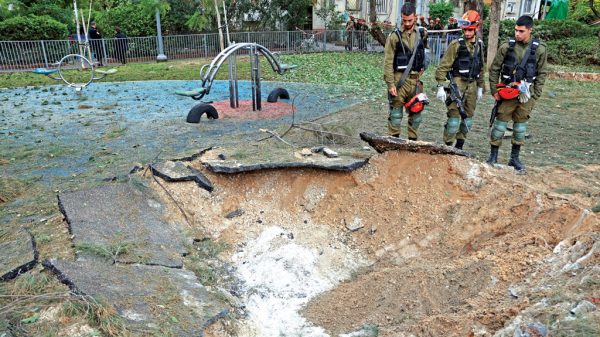
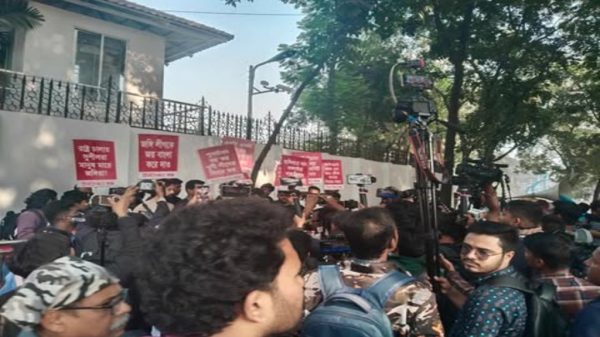



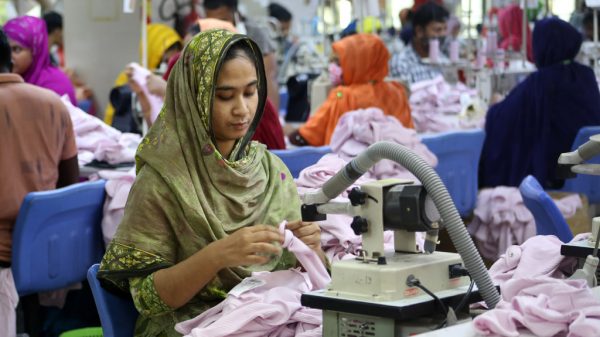











Leave a Reply